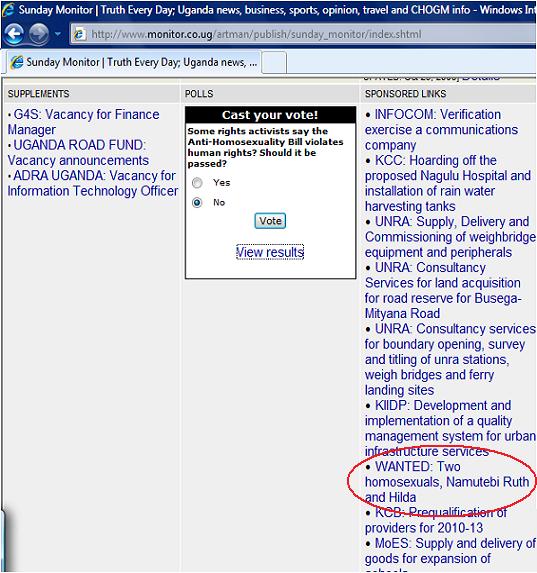This post has the potential to be a more formal article, but for now, I am getting some thoughts together which are in addition to what I wrote at Crosswalk.com and the Christian Post about the topic.
In the earlier article, I noted that the Director of the AIDS Prevention Research Project at Harvard University, Edward Green, said that effective work with marginalized populations (e.g., glbt people) requires that health care workers develop trust with those they want to reach. Dr. Green said that, as law, this bill would drive gays and lesbians into hiding. While that would be tragic and have an impact on AIDS rates, the primary driver of AIDS in Africa is not homosexuality. Because of that, the rates of AIDS may not change much, although any change would not be beneficial. However, what might drive people away from interventions and/or treatment is the threat of being considered homosexual.
In the recent radio interview on Premier Christian Radio, Dr. Martin Ssempa said South Africa had the “highest HIVAIDS in the whole world” and attributed that to legalized homosexuality there. He also said that Uganda does not want another source of HIV. In a recent article, David Bahati, the Anti-Homosexuality Bill co-sponsor, said that homosexuals spread AIDS three times more than straights. Does this public health argument work?
Not so much. I asked Dr. Green about the AIDS rates and he said while South Africa had the largest number of AIDS cases in the world, there AIDS rate is lower than some of their African neighbors where homosexuality is illegal. For instance, Botswana, Zimbabwe and Swaziland have higher AIDS prevalence rates than South Africa (over twice as high) but homosexuality is illegal in these countries. The legal status of homosexuality, while important for human rights issues and practically, to fight AIDS in that population, does not seem to play much of a role in the overall AIDS rate in African nations.
Then, what does?
Dr. Green told me that 90% plus of HIV is transmitted by heterosexual behavior. Thus, focusing on gays misses the mark. If an African country does not address multiple concurrent partnerships and fidelity, not much good will happen.
So why do I believe this bill will turn the clock back on AIDS progress?
One, since politicians (e.g., Bahati) and ministers (e.g., Ssempa) are framing this Anti-Homosexuality Bill as a part of the fight against AIDS, I believe straights will shy away from getting educated, tested or treated because of the increased stigma of having AIDS. More than the stigma would be the fear of being reported to the police.
Two, I think straights may assume that HIVAIDS is a gay disease and believe that straight sex will be safer somehow. Given the fact that AIDS is really a straight disease in much of Africa, any movement in that direction could compromise the progress in Uganda. When supporters of this bill say they favor it for public health reasons, they are not working with all the facts, or thinking about possible effects on behavior.
The Anti-Homosexuality Bill will create more stigma surrounding AIDS which in my view will prevent people from seeking treatement, education or testing. This cannot be a good thing.
